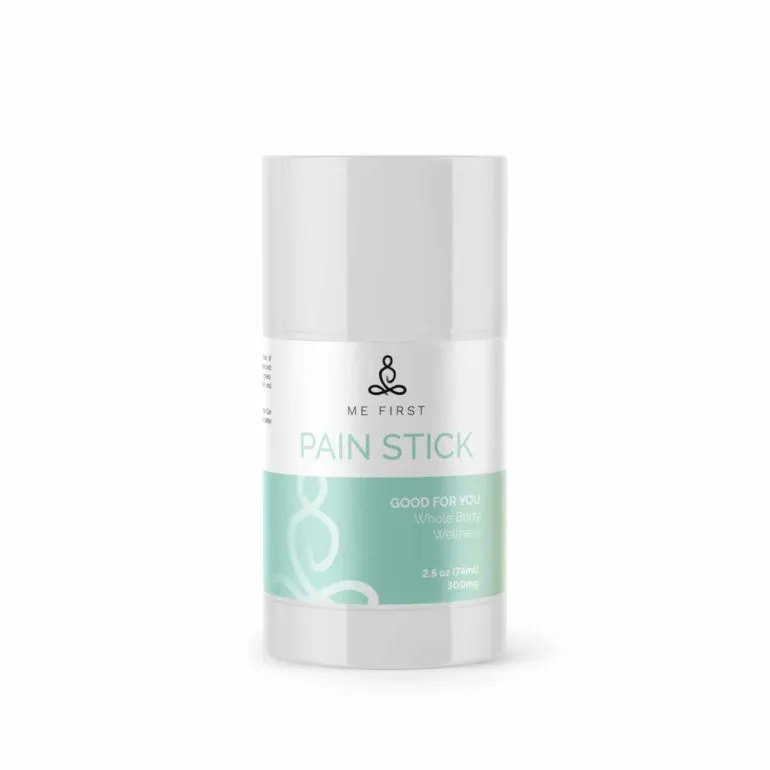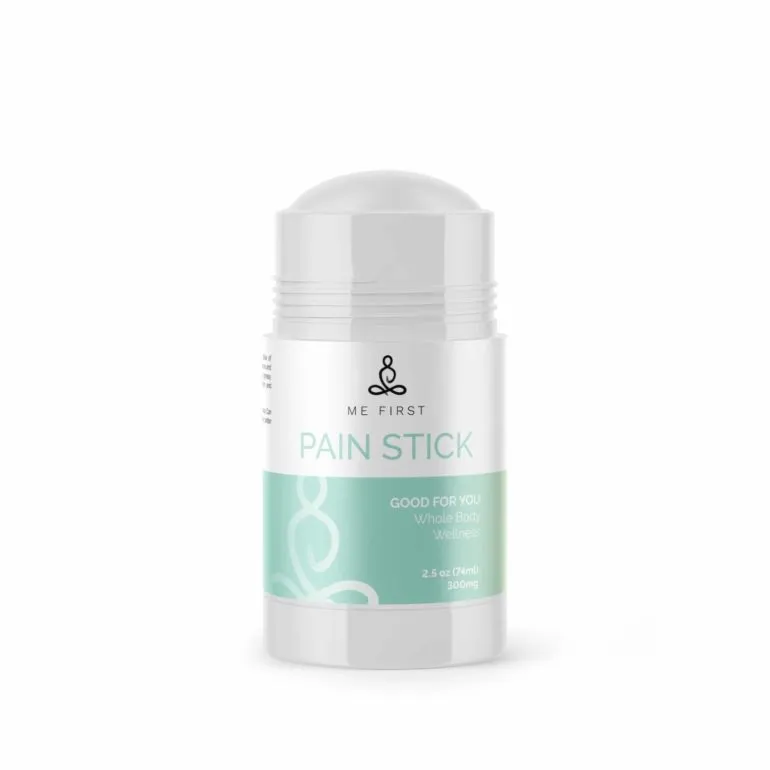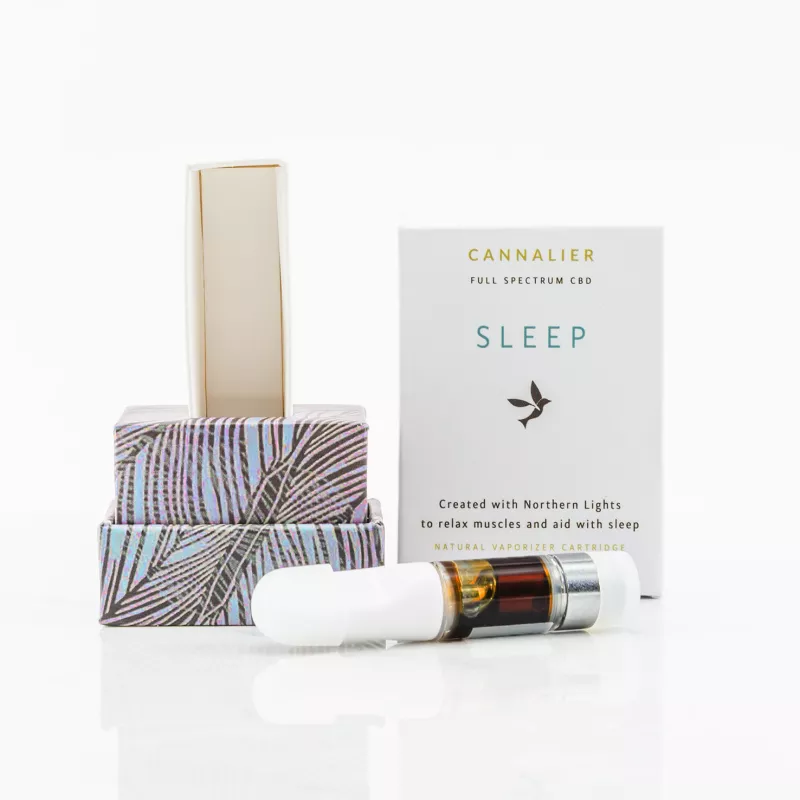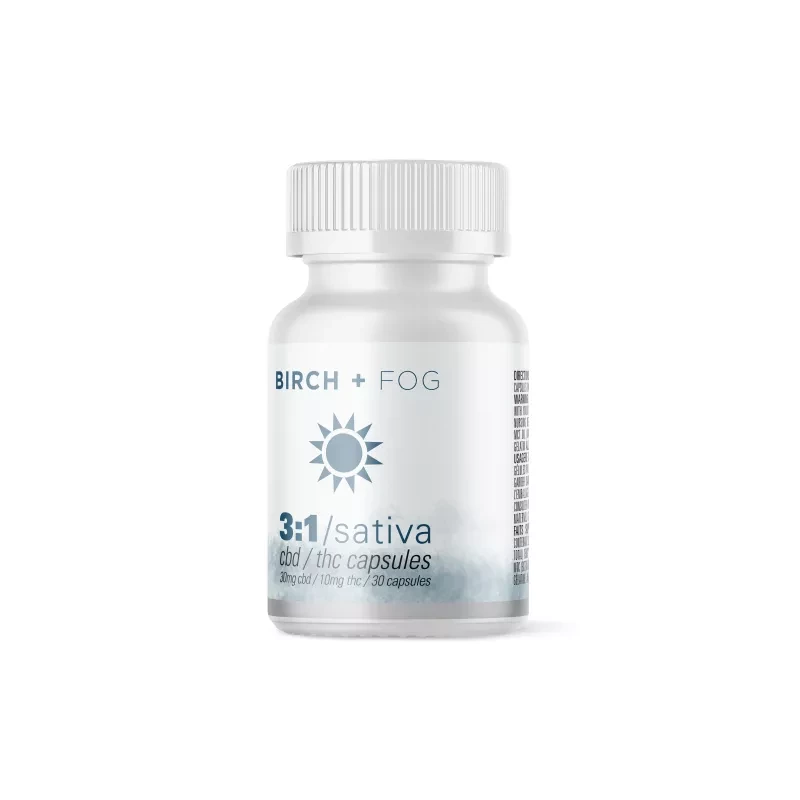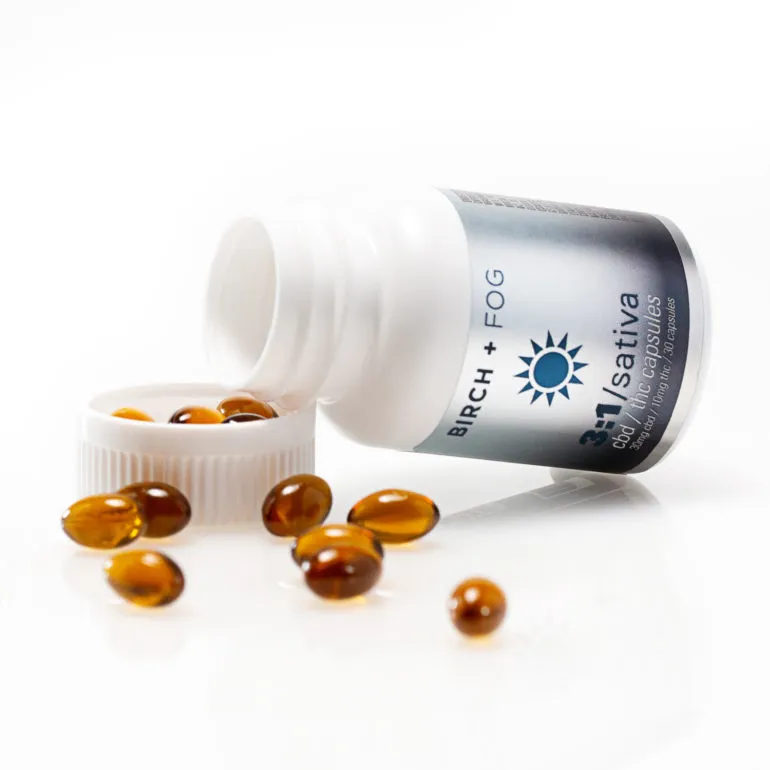- Shop All
- Type
- (144) THC>
- (75) CBD>
- Need
- Sleep>
- (21) Pain>
- (10) Anxiety>
- (6) Pets>
- (88) Edibles
- (14) CBD Edibles>
- (60) THC Edibles>
- (3) Ratio Edibles>
- (33) Hybrid Edibles>
- (87) Vegan>
- (5) Beverages>
- Strain
- (29) Indica>
- (24) Sativa>
- (47) Hybrid>
- (14) Tinctures
- (5) Anxiety Tinctures>
- (9) CBD Tincture>
- (1) Pain Tincture>
- (4) Ratio Tincture>
- (4) Sleep Tincture>
- (4) THC Tincture>
- (4) Capsules
- (1) CBD Capsules>
- (0) THC Capsules>
- (3) Ratio Capsules>
- Foggers
What Are the Main Uses of CBD Oil?
Lexie LivingstonNovember 23, 2021LatestContents
- What are Some of the Main Uses of CBD oil?
- CBD for Seizures
- CBD for Pain
- Cbd Pain Stick - Me First
- CBD For Insomnia
- Sleep Cbd Vape Cartridge - Cannalier
- CBD For Anxiety
- CBD For Depression
- 10:1 Ratio Capsules - Now + Then
- CBD For Digestion
- CBD For Acne & Skin Issues
- CBD For Cancer
- Cbd : Thc Capsules 3:1 Ratio | Day Time - Birch + Fog
- CBD For Addiction Recovery
- CBD for Diabetes
- Conclusion
CBD oil products are becoming increasingly popular as a natural supplement that is used to treat a wide variety of ailments. They have been praised for their effectiveness in managing both physical and mental health conditions. CBD natural health products have been recommended for anything from seizures and chronic pain to insomnia, depression, anxiety, PTSD, and even addiction. But, does it really work? What does the research say? Here we’ll take a look at some of the most common conditions CBD is used for today, discuss what the research says, and provide you with our recommendations for high quality products.
What are Some of the Main Uses of CBD oil?
CBD for Seizures
The strongest scientific evidence shows the effectiveness of CBD in treating childhood epilepsy syndromes, such as Dravet syndrome and Lennox-Gastaut syndrome (LGS). Neither of these syndromes typically respond to anti-seizure medications. CBD oil products have shown in multiple trials to lessen the number of seizures and, in some circumstances, to completely stop them. As a result, the FDA approved the first cannabis-derived (CBD) medication, Epidiolex, in 2018.
Different areas of research are still in the early stages, although there are signs that CBD could help prevent other types of seizures or improve the efficacy of antiepileptic medicines. CBD appears to significantly reduce seizures in persons with CDKL5 deficient condition, Aicardi syndrome, Doose syndrome, and Dup15q syndrome, according to early clinical trials.
If you're interested in learning more information about how CBD oil products can treat seizures, click here.
Our Top Pick for Seizures
1 Full-Spectrum CBD Tincture-Day-Time | Birch + Fog
Our top pick for combatting seizures is none other than Birch + Fog’s full-spectrum CBD oil tincture in Daytime. This tincture is a fantastic tincture with many uses. It is made from only natural, non-toxic ingredients, with hundreds of different phytochemicals like cannabinoids, terpenes, and other compounds. It contains two simple ingredients, MCT oil and full-spectrum CBD oil.
Most cannabinoids and terpenes are intact due to being minimally refined and sourced from CO2 extracted, all-natural hemp. All compounds work together synergistically (the entourage effect) to provide the maximum benefits possible.
When taken sublingually (under the tongue), effects can be felt in as little as 10 minutes and will last a few hours. This CBD natural health product is available in 500mg, 1000mg, and 1500mg bottles, in addition to being available on subscription with increasing discounts.
If you’re new to dosing with a tincture liquid, Birch + Fog has made it easy to determine your unique dose. Simply enter a few details about yourself (weight/ailment/severity of ailment) in addition to details on this product, and it will calculate a recommended starting dose. The whole process is fast and easy, just under a minute. Click here for more information.
Pros:
- Compounds work synergistically (entourage effect)
- 3 bottle sizes available
- Discounts available
Cons:
- Need to spend $125 for free shipping
Highlights:
- Made with only 2 ingredients
- Can be taken sublingually for fast acting effects
- Accurate dosage recommendations with dosage calculator
CBD for Pain
Ongoing research in the United States suggests that CBD oil products are useful in treating chronic, non-cancer pain. In a study published in 2020, researchers gave CBD topically to a group of patients with symptomatic peripheral neuropathy (a disorder caused by nerve damage in the brain and spinal cord), whereas another group of patients with the same illness got a placebo. When compared to those who used the placebo, those who used the topical CBD had a substantial reduction in acute, sharp pains and chilly, itching feelings. There were no negative side effects recorded by anybody after using CBD for pain.
CBD oil products that are used topically do not have the same systemic effect. Using a topical CBD natural health product is more localized and helps pain in a specific location. It may have a more noticeable effect since it is more direct. When using CBD for pain, it inhibits the release of chemicals that cause inflammation in the body, according to animal research published in 2018. CBD applied to the skin as an ointment dramatically decreased inflammatory skin disease and scarring, according to a 2019 research.
Sativex, an oromucosal (absorbed in the lining of the mouth) spray with equal quantities of THC and CBD, was approved in Canada in 2005 for the treatment of central neuropathic pain caused by multiple sclerosis. In 2007, Canada re-approved the drug's usage for cancer pain that had not responded to prior treatments.
Our Top Pick for Pain
2 CBD Pain Stick | Me First Wellness
Our top CBD for pain is a full-spectrum CBD pain stick by Me First. It combines 300mg of full-spectrum CBD with menthol and peppermint for almost instant pain relief with a cooling effect. The full-spectrum blend contains beneficial cannabinoids like CBD, CBC, CBN, and phyto-cannabinoids. All work together simultaneously to provide relief from muscle, back, joint, and menstrual pain.
This no-mess stick is convenient to use and can be taken with you in your purse, work bag, or gym bag. It is recommended to apply and rub into the affected area. For better absorption, apply after a hot bath or shower.
Pros:
- 300mg of full-spectrum CBD for pain
- Can be taken on the go
Cons:
- No subscription savings available
Highlights:
- Fast relief with instant cooling
- Blend of beneficial cannabinoids work together
CBD For Insomnia
CBD oil products were studied in 2019 to see whether they may help people sleep better and feel less anxious. The study included 72 participants, 47 of whom had anxiety and 25 of whom had poor sleep. Every day, the participants were given a tablet containing 25 milligrams (mg) of CBD. In the first month, patients reported less anxiety and better sleep, with 79.2 percent reporting lower anxiety. CBD oil products can also aid with pain, which can lead to difficulty sleeping.
According to a 2018 study published in Frontiers in Pharmacology, there is a substantial quantity of data to support the claim that using CBD for sleep relieves pain at the same time. Using a CBD natural health product can help sleep by lowering chronic pain, according to scientists.
Taking CBD for sleep issues has been shown to directly impact the sleep cycle itself. Four people with Parkinson's disease were studied in a 2014 study. CBD was discovered to help with the symptoms of REM sleep behavior disorder (RBD), a condition in which a person acts out their dreams. Poor sleep and nightmares are linked to RBD. A CBD natural health product may be useful in the treatment of RBD, according to a 2017 review, and it also has the potential to cure excessive daytime drowsiness. Using CBD for sleep may help decrease grogginess, which is another symptom of insomnia. Based on both human and animal research, a 2014 review concluded that using CBD for sleep may have the ability to enhance wakefulness.
Our Top Pick for Insomnia
3 SLEEP CBD Vape Cartridge | Cannalier
One of the fastest ways to feel the benefits of a CBD natural health product is through vaping. Our top CBD for sleep is a CBD vape cartridge by Cannalier in the unique SLEEP blend. This blend contains just two ingredients, full-spectrum CBD oil and terpenes. The terpenes in this product were chosen specifically for their ability to help people fall asleep and stay asleep. All terpenes are extracted using a water-based extraction process and are derived from high-quality, naturally derived plant sources.
Unlike most other vape cartridges, this CBD natural health product contains no carrier oils (MCT oil, propylene glycol, vegetable glycerin). With thorough product testing, failure rates and leakage issues are eliminated.
Pros:
- Fast relief from vaping
- No failure rate or leakage issues
- Full-Spectrum CBD for sleep
Cons:
- Only compatible with Vessel pens/510 thread batteries
Highlights:
- Specific blend of terpenes to assist with sleep
- No carrier oils
CBD For Anxiety
The most common mental illnesses in the world are anxiety disorders. Using CBD for anxiety will interact with the cannabinoid type 1 receptor (CB1R), the serotonin 5-HT1A receptor, and other brain receptors that govern fear and anxiety-induced behaviors, according to the authors of a 2015 review. Preclinical and clinical data confirmed CBD as a successful therapy for a variety of anxiety disorders, including generalized anxiety disorder, post-traumatic stress disorder, panic disorder, obsessive-compulsive disorder, and social anxiety disorder, according to the authors of the study. In a 2019 research, 91% individuals with PTSD reported decreased symptoms after ingesting CBD oil products.
Our Top Pick for Anxiety
4 CBD Isolate Gummies | Kandy Kandy
For anxiety, we chose a CBD isolate gummy by Kandy Kandy. This CBD natural health product contains CBD isolate that is pure cannabinol without any THC or terpenes. You’ll receive all the calming benefits of CBD for anxiety without any risk of intoxicating effects or increased stress.
Being in a fun and convenient gummy form, they can be taken with you anywhere. They are a perfect way to dose before social engagements or even a work meeting. Made with no corn syrup, artificial flavors, or colors, these gummies are also gluten-free. The natural colors come from turmeric (which acts as a natural anti-inflammatory) and hibiscus flowers (which helps liver function, regulates blood pressure, and fights bacteria).
Five flavor options are available: mixed fruit, green apple, strawberry, orange, mango, and peach). When taking CBD for anxiety, it is recommended to start with 10mg and wait 2 hours to feel the full effects.
Pros:
- Lab-tested Isolate CBD for anxiety with no THC (no psychoactive effects)
- Pure cannabinol
- Flavor options available
Cons:
- At least 1 hour activation time
Highlights:
- Natural colors from turmeric and hibiscus with additional benefits
- Gluten-free, no corn syrup or artificial flavors/colors
CBD For Depression
A poll taken in 2020 found that 22% of surveyed Canadians had been diagnosed with depression. In a 2018 research, medicinal cannabis users were asked to keep note of their symptoms and dosages, and the findings were subsequently examined. Using a CBD natural health product was found to aid with sadness, anxiety, and stress symptoms in the study. Depressive symptoms were found to have decreased by 50% in users. The researchers also observed that a combination of high CBD (>9.5%) and low THC (5.5%) resulted in the most substantial depression decrease.
CBD oil products may help ease depression symptoms by interacting with serotonin receptors in the brain, according to research. Serotonin is a neurotransmitter that is involved in a variety of bodily activities, including mood modulation. It might aid in the development of sentiments of happiness and well-being. Many antidepressant medicines operate by boosting serotonin levels in the brain, and it is frequently implicated in the beginning of depression. According to a 2018 research, cannabidiol appears to act through changing how the brain responds to serotonin that is already there, rather than increasing serotonin levels.
Our Top Pick for Depression
5 10:1 Ratio Capsules | Now + Then
For depression, we chose a ratio capsule by Now + Then. This particular capsule is a 10:1 ratio, which means that each one contains 50mg of high-quality full-spectrum CBD oil with 5mg THC. This CBD natural health product contains just three simple ingredients, MCT oil, CBD oil, and cannabis oil. All of these work together (the entourage effect) to combat depression. You can use this CBD for anxiety as well!
Due to containing THC, this product may cause slight psychoactive effects on the body. The recommended dosage is 1 capsule. It is advised to wait 45 minutes to determine how your body responds before taking more. If you are new to taking THC, avoid taking this product on an empty stomach.
Pros:
- 50mg CBD and 5mg THC
- 3 ingredients total
- Easy to dose capsule form
- Can also be used as CBD for anxiety
Cons:
- Recommended to take with food if new to THC
Highlights:
- High CBD/low THC found best for substantial decrease in depression
- Entourage effect with MCT oil, CBD oil, and cannabis oil
CBD For Digestion
Doctors have been prescribing CBD oil products as an alternate therapy for patients since the FDA authorized and licensed it. The state of one's gut and digestion has a significant impact on one's overall health. Many creatures, including bacteria, parasites, and others, call the stomach home.
A CBD natural health product is a useful supplement for gut health, and it has been suggested and utilized for a variety of gut-related ailments. Cannabinoid receptors aid in the regulation of digestive functions such as salivation, appetite, hunger, and satiety. CBD has also been shown to aid with bloating and stomach swelling. CBD oil products can help people with constipation, diarrhea, and stomach discomfort. They can also help with serious illnesses including Crohn's disease, IBS, and Colitis.
Some data shows that CBD may have minor advantages for inflammatory bowel illness, according to the National Centers for Complementary and Integrative Health. It may be effective for relieving pain and inflammation (qualities that might aid in the treatment of IBS), according to a review published in Molecules. CBD oil products may offer some advantages for alleviating chronic pain and decreasing inflammation, according to a 2020 study.
These findings are backed up by research published in the Journal of Experimental Medicine. Another study from 2020 looked at the biological effects of CBD for pain and found that it may have anti-inflammatory capabilities. For more information on how CBD works to alleviate digestion issues, click here.
Our Top Pick for Digestion
6 CBD Isolate Tincture | Natuur
For digestion issues, we chose this certified organic, lab-tested, vegan, gluten-free, and cruelty-free CBD isolate tincture by Natuur. The CBD isolate is CO2 extracted from hemp and contains no THC or terpenes, making any intoxicating effects impossible. It contains only two ingredients, MCT oil and CBD isolate oil.
This product is available unflavored, in a citrus flavor and a calming chamomile flavor. The flavors are made using essential oils and include no artificial flavors or preservatives. It is available in three different strength bottles, 500mg, 1000mg, and 1500mg.
Pros:
- Vegan, gluten-free, & cruelty-free
- CO2 extracted CBD isolate from hemp
- No intoxicating effects
Cons:
- Not available for subscription
Highlights:
- Certified organic & lab-tested
- Only 2 ingredients
- 3 flavor options to choose from
CBD For Acne & Skin Issues
Topical CBD oil products, according to research published in the Journal of Clinical Investigation in July 2014, can be a powerful anti-acne treatment due to its anti-inflammatory characteristics. CBD (and THC) were shown to be effective in lowering the itching and inflammation associated with eczema and psoriasis in a research published in the Journal of the American Academy of Dermatology in July 2017. A CBD natural health product may be effective for treating several common symptoms of skin problems, such as dryness, according to a 2019 research.
Our Top Pick for Acne & Skin Issues
7 CBD Facial Serum | Nectar Infusions
Nectar Infusions CBD Facial Serum is the perfect remedy for acne, scarring, eczema, rosacea, psoriasis, and dermatitis. It combines CBD, rosehip oil, carrot seed oil, and essential oils, with absolutely no harsh chemicals or fragrances. This CBD natural health product works as an anti-inflammatory, antioxidant, and has cell-regeneration properties. Your skin will be nourished and protected by the rosehip oil, carrot seed oil, and essential oils.
You’ll be left with a golden glow with your skin healed on a cellular level. According to one verified buyer, “I absolutely love this serum! I have been looking for a serum to help calm my super sensitive skin and help reduce redness. Nothing has worked except for this! I’m obsessed! This is one of those items that I won’t live without now! Thank you for making a great product!”
Pros:
- No chemicals or fragrances
- Contains rosehip oil, carrot seed oil, & essential oils
Cons:
- Reviews caution against use on sensitive skin
Highlights:
- Provides anti-inflammatory, antioxidant, cell-regeneration, nourishment, and protection
- Healing on a cellular level
CBD For Cancer
CB1 and CB2 are both expressed in many cancers. It's been linked to a bad prognosis when these two cannabinoid receptors are overexpressed. CBD contains anti-proliferative and pro-apoptotic properties, according to research. Apoptosis is a type of cell death that happens when cells are instructed to die, and too little apoptosis occurs in cancer. CBD promotes apoptosis, which causes cancer cells to die. According to the American Cancer Society, researchers have revealed that CBD oil products may even decrease cancer cell proliferation.
Reactive oxygen species metabolism, endoplasmic reticulum stress, and inflammation are all involved in anti-tumor action. However, this isn't the only way a CBD natural health product can slow tumor development. The ECS receptor GPR55 is overexpressed in breast and prostate cancer, and CBD has a function in indirectly blocking it, reducing tumor growth.
CBD has also been studied for its ability to reduce nausea and vomiting, which are common side effects of chemotherapy and radiation therapy. Marinol and Cesamet are two cannabis medications that have been authorized by the FDA to treat such negative effects.
CBD's effect on nausea and vomiting in rats may be connected to its interaction with serotonin receptors, according to research published in the British Journal of Pharmacology. THC, on the other hand, appears to have a stronger anti-nausea and anti-vomiting effect than CBD, according to the study. When managing symptoms of cancer, people often use CBD for pain management as well.
Our Top Pick for Cancer
8 CBD/THC Capsules 3:1 Ratio-Daytime | Birch + Fog
When combating cancer, it’s important to incorporate both CBD and THC. That’s why we chose Birch + Fog’s 3:1 ratio capsules. Each capsule contains 3 times the CBD to THC with 30mg CBD and 10mg THC. This CBD natural health product contains all natural, non-toxic ingredients, with no unnecessary ingredients or fillers. You’ll experience a slight buzz from the THC while feeling tremendous healing, relaxation, and relief from the entourage effect.
Being in capsule form allows for consistent and accurate dosing on a daily basis. The recommended dose is 1 softgel to start. Wait 45 minutes to 2 hours to feel how your body responds before taking more.
Pros:
- All natural & non-toxic ingredients
- No unnecessary ingredients or fillers
Cons:
- May take 45 minutes to feel effects
Highlights:
- 3:1 ratio creates the entourage effect
- Tremendous healing, relaxation, & relief
- Easy & consistent daily dosing
CBD For Addiction Recovery
CBD has recently gotten a lot of press lately for its ability to treat drug addiction. The literature focuses on CBD's pharmacotherapeutic potential in terms of its use in preventing drug relapse. CBD is anticipated to be beneficial in lowering anxiety and tension associated with drug signals and moderating anti-depressant effects, making it a good target for drug use relapse prevention. A CBD natural health product will also have an effect on the brain circuitry that is responsible for drug yearning and seeking behaviors that are activated by drug-related environment and stress.
Scientists in Spain discovered that lab mice treated with CBD oil products were less likely to start using cocaine after a period of non-use, even when they were exposed to triggers associated with re-use, based on other preclinical research that suggests cannabidiol (or CBD) may be useful in treating cocaine addiction.
Our Top Pick for Addiction Recovery
9 Nano CBD Tropical Green Tea | Now + Then
Recovering from addiction comes with a host of triggers. For many, taking a pill or even vaping may be reminiscent of using drugs. This is why our top CBD natural health product for addiction recovery comes in the form of a beverage: a tasty, tropical, green tea. This nano-infused CBD beverage contains 25mg of CBD distillate, which is instantly absorbed. The effects can be felt in as little as 6 minutes! Backed by extensive lab testing, the nanotechnology is able to increase the bioavailability of the cannabinoids.
You may purchase this product in single cans, 2 packs, 4 packs, 8 packs, and even 12 packs.
Pros:
- CBD is instantly absorbed
- Nano-infused CBD distillate
Cons:
- $10 each if bought separately
Highlights:
- Effects in as little as 6 minutes
- Increased bioavailability
- Extensive lab testing
CBD for Diabetes
CBD oil products appear to help minimize the impact of high glucose levels on other cells in the body, which often precedes the development of diabetes and its problems, according to human cell tests. In another trial, researchers discovered that CBD reduced levels of resistin (a protein that causes resistance to insulin, the protein that regulates blood sugar levels) and increased levels of glucose-dependent insulinotropic peptide (a hormone that ensures a sufficient release of insulin from digested food) when compared to their pre-test baselines. These findings imply that CBD might be used as a natural diabetes therapy by assisting the body in regulating insulin-related hormone levels.
"CBD was able to reduce oxidative stress, inflammation, cell death, and vascular hyperpermeability associated with diabetes," according to the American Journal of Pathology, noting that "oxidative stress and inflammation play essential roles in the development of diabetes and its consequences." In addition, a CBD natural health product may help with insulin resistance and pancreatic health.
Our Top Pick for Diabetes
10 Full-Spectrum CBD Tincture | Natuur
Natuur’s full-spectrum CBD tincture is our top pick for diabetes. It is simple and pure with only two ingredients, MCT oil and full-spectrum CBD oil. This tincture is lab-tested, certified organic, vegan, gluten-free, and cruelty-free. Containing only essential oils and natural flavors, it contains no artificial flavorings or preservatives. The CBD is hemp-derived and CO2 extracted in Canada. Being full-spectrum, you can anticipate the entourage effect without any intoxicating effects.
This CBD natural health product comes in a lemon ginger flavor, a chamomile flavor, and a soothing mint flavor. You can purchase a 500mg bottle or a 1000mg bottle.
Pros:
- 2 ingredients: MCT oil & full-spectrum CBD oil
- Simple and pure
- No artificial flavorings or preservatives
Cons:
- No subscription savings option available
Highlights:
- Certified organic, vegan, gluten-free, & cruelty-free
- Entourage effect with no intoxicating effects
- 3 tasty flavor options
Conclusion
If you suffer from a chronic illness such as the ones listed above, you may become tired and frustrated with trying to find an effective, conventional treatment. A lot of medications used today come with various side effects, ultimately causing even more stress and suffering. CBD oil products have emerged as a new way to alleviate various conditions, both physical and mental. Ongoing research continues to show promise in managing these conditions with CBD natural health products.
It is always recommended to consult with your physician prior to starting CBD for anxiety, pain, sleep, etc. as it has been shown to have interactions with certain pharmaceutical medications and may cause some side effects. You can browse our entire online store by clicking here.
0/5 (0 Reviews)Latestfrom B+FBe the first to know about exciting new products, special events, seasonal offers, and much moreOur Collective
Wellness to your doorstepCopyright © 2024 All Rights Reserved | BIRCH + FOG[gtranslate]Save your cart?
x











